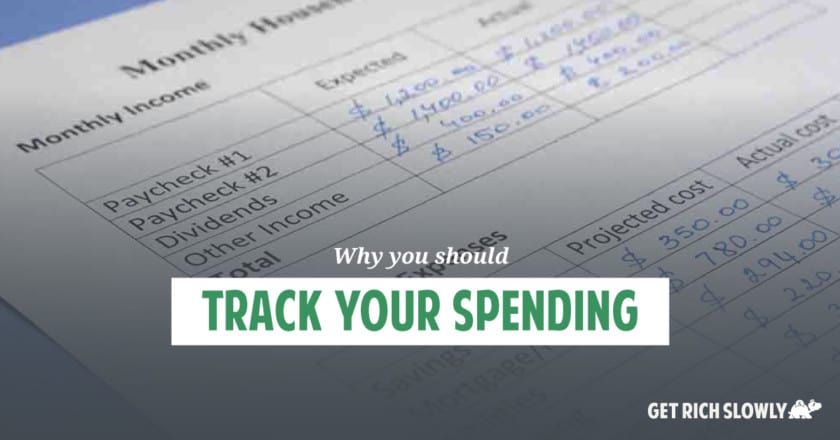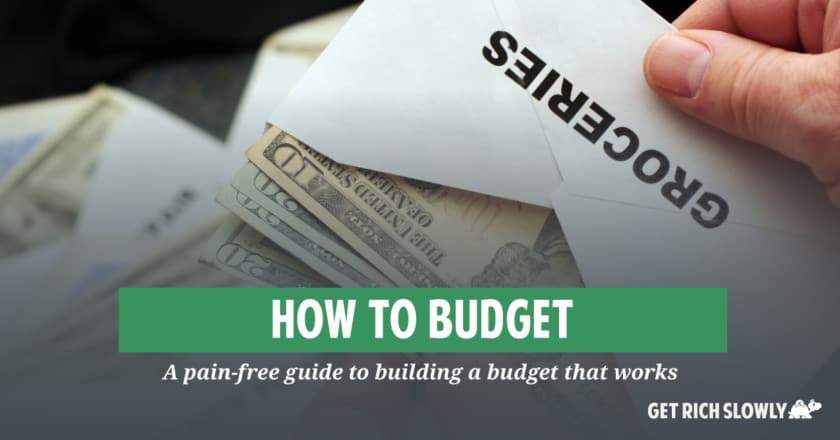Why you should track your spending (and why Quicken sucks)

Last year wasn't good for me. Depression and anxiety reigned supreme. By objective standards, my life was pretty good. But subjectively, life sucked. Going into 2020, I decided I needed to make some changes. I'm pleased to report that the first five weeks of the year have gone swimmingly. Life is grand.
I've made three specific changes that I believe have contributed to this improvement:
- I've rented office space outside the house. My office is for work only. I do not allow myself to play games (or engage in other shenanigans) at the office. Zero tolerance.
- I've begun getting up early. I tend to be an early riser anyhow, but early for me means about six o'clock. This year, I'm generally rising at 4:00 or 4:30, which means I'm at the office by five.
- I've curtailed my drinking. In fact, I didn't touch a drop of alcohol during January. I've had a few drinks in February, and it's been interesting to see how it affects me, both in the moment and then for days after.
Taken together, these three changes have mitigated my mental health problems and made me more productive. I love it. Over the next six weeks, I plan to integrate two additional changes into my life: I'm going to begin exercising regularly and I'm going to cut back on videogames. I expect this to provide an additional boost to my well-being.
How to budget: A pain-free guide to building a budget that works

"A budget is telling your money where to go instead of wondering where it went." — John C. Maxwell
I've had more one-on-one money coaching meetings during the past year than my previous twelve years writing about money combined. I used to claim that I'd never do money coaching. Apparently, I was wrong.
As I meet with folks, certain common themes stand out. Continue reading...
Financial advice from my father (when I was nineteen)


"It's odd you should ask that today," I said after I told her the story of my father's six-year battle with cancer.
"Why?" she asked.
How would you spend $100k? Here’s what to do with $100,000

What happens when a half dozen money nerds spend 48 hours together in Clearwater, Florida? Do they romp on the beach? Swim in the ocean? Cook dinner together? Drink copious quantities of alcohol? Stay up until three in the morning, laughing and telling stories? Yes. Yes, they do all of these things.
But they also spend a lot of time talking about money. A lot of time talking about money. (That's what makes them money nerds!)
For the past few days, I've been hanging out with some of my favorite fellow money nerds, including Mr. Money Mustache, Paula Pant (from Afford Anything), Joel (from FI 180), Marla (featured on this Mad Fientist podcast), Ben (who wrote this MMM article about how he gets his cars for free), and the effervescent Heather, who has no blog connections at all — but might someday. Continue reading...
Money nerds and their spreadsheets
"When are you going to write about your hot tub?" readers have been asking. "We want photos of you in your hot tub." Fine. Here's a typical scene on any given afternoon. (This photo was taken with my iPad, and I can't figure out where the camera lens is...)

The cats like the hot tub too, but only when the lid is closed. I suspect they'll live on top of this thing during the winter.
How much house can I afford?
"How much house can I afford?" Answering this question correctly is one of the keys to building a happy, wealthy life. Unfortunately, there's a vast housing industry in the U.S. that's geared toward providing the wrong answer.
You see, housing is by far the largest expense in most people's budgets. According to the U.S. government's 2016 Consumer Expenditure Survey, the average American family spends $1573.83 on housing and related expenses every month. That's more than they spend on food, clothing, healthcare, and entertainment put together!
Too many folks struggling to make ends meet focus their attention on fine-tuning their budget. They try to save big bucks by clipping coupons, growing their own food, and/or making their own clothes. While there's nothing wrong with frugal habits -- I applaud everyday thriftiness! -- all of these actions combined won't (and can't) have the same impact on your budget as keeping your housing payments affordable.
Quick money wins to help you feel more in control of your finances
I cringe when I remember learning to drive. At fifteen-years-old, I was impatient, full of nervous energy, and so short that I could barely reach the steering wheel. (Which is still kind of a problem, but I digress.)
My parents were backseat driving, of course, instructing me on how to drive the rural, dirt road just outside our neighborhood. “Let off the brake,” they said, and the car began to coast, slowly. Cool, I can handle this, I thought. “Hit the gas,” they said. Chaos ensued.
I swerved into the other lane, and when I yanked the steering wheel to straighten out, the car jerked in the other direction and I almost hit a fence post. My parents shouted. I screamed. All of us were terrified. I felt completely frazzled and out of control. It was like the car had a mind of its own.
Advice for a young adult learning to manage money
Note: Today's post is a little different. It's a letter to a young friend, who asked to remain anonymous. She's 21 and just landed her first job. Now that she's bringing home a regular income, she wanted advice on what to do with her money. Here's my response.
First up, I think it's awesome that you asked me for advice. That took guts! Plus, it's a sign that you're already making good decisions. You're being proactive, taking charge of your own life. I like that.
Like you, my parents didn't teach me how to handle money very well. They did their best, but it's tough to teach what you don't know. I've had to figure a lot of this stuff out on my own, and I've made a lot of mistakes along the way.
The best way to spend less? Cut back on the big stuff!

You don't need a high income to achieve Financial Independence.
Making more money helps, sure, but if you're diligent about cutting costs, it's possible to reach financial freedom on even an average salary.
I want you to meet my friend, John. John is an 81-year-old retired shop teacher. He's a millionaire -- but you'd never know it.
Your Thrift Habits — Budgeting tips from 1948
Long-time readers know that I love old instructional films -- the kind of thing we older folks used to watch in high school. ("Play it backwards!")
Because the previous owners of Get Rich Slowly "unpublished" all of the old films I once shared, I get the joy of sharing them again with a new audience. Today, we start with a gem: "Your Thrift Habits", a film designed to teach teenagers how to budget.
Produced in 1948 by Coronet Instructional Films, this 10-minute short is filled with great advice -- and it's fun to watch too.